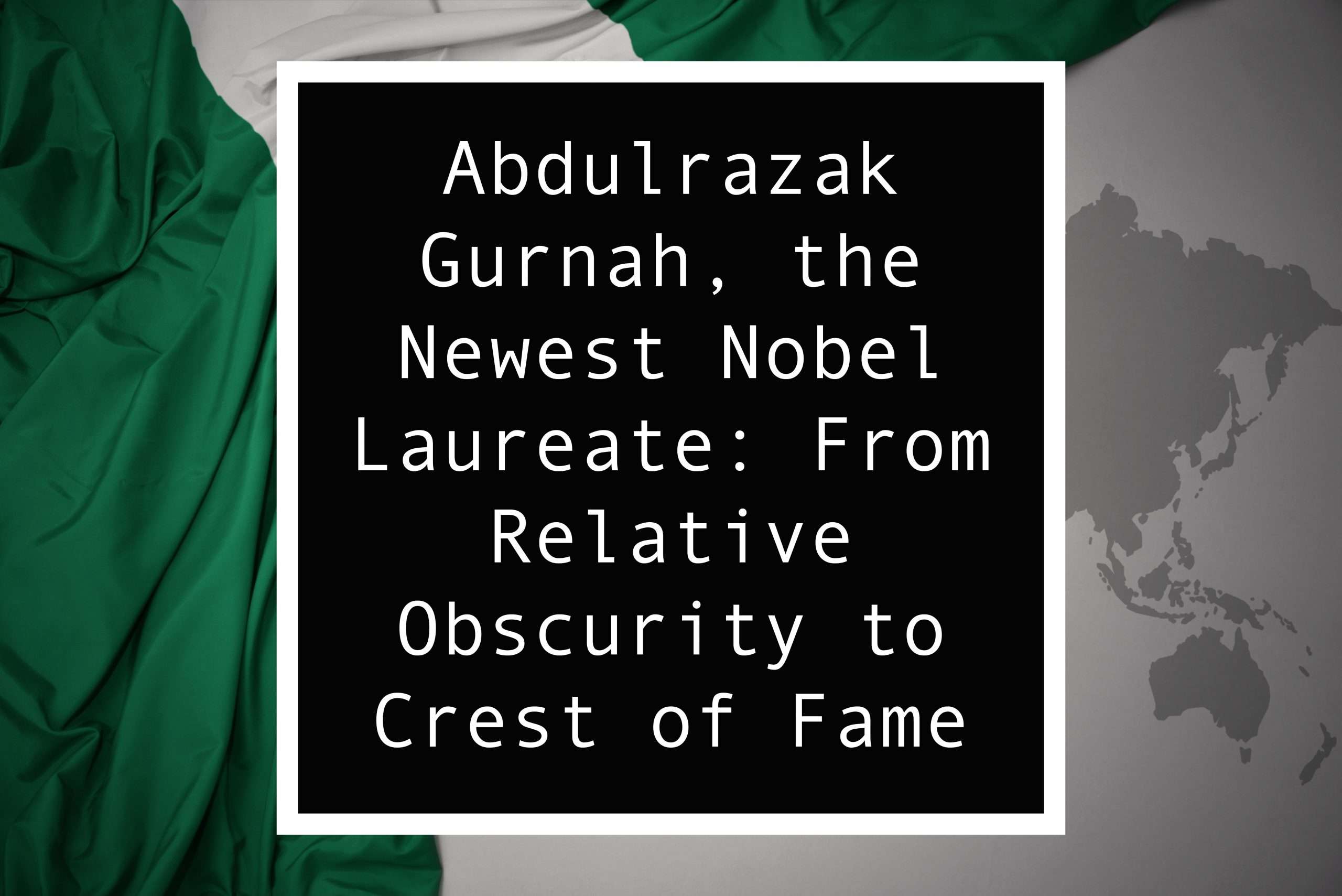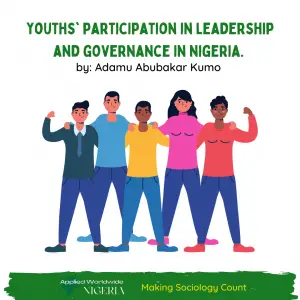Abdulrazak Gurnah Wins the Nobel Prize for Literature
Abdulrazak Gurnah, black person from Tanzania has won the Nobel prize for literature this year, making it the second time a black person from Africa would win the coveted prize since its inception in 1901 when a French poet and essayist Sully Prudhomme won the prize for the first time. It is indeed an achievement for African literature and reassurance that African literature has what it takes to thrive in the international literary landscape.
The Swedish Academy, the body that charged with the processes of awarding the various Nobel prizes announced last Thursday that Abdulrazak Gurnah, a relatively unknown Zanzibari born novelist who has resided in United Kingdom since 1968 was awarded the coveted trophy with his plethora of literary exploits which consist of ten published novels and a number of short stories.
Humble Roots of Abdulrazak Gurnah
Abdulrazak Gurnah is a writer whose personal stories and experiences reecho and reecho in pages of his books where characters are often helpless protagonists finding themselves in the grip of alienation from their roots in East Africa as a result of political instability, persecution, acute poverty, need for safety and survival with the colonial manipulation and turbulence as their background. He was himself born in Zanzibar, a multiethnic island hitherto ruled by an Arab sultanate before it was taken over by the black majority in a revolution of 1st of June 1964 which culminated in the hitherto independent island becoming a part of the fusion of the former Tanganyika and Zanzibar alliance known today as Republic of Tanzania.
In 1968, Abdulrazak Gurnah, being a member of the much persecuted Arab minority in Zanzibar found it necessary to leave Tanzania for United Kingdom where he hoped to find safety, and obviously, his experiences – fleeing his root and the processes of seeking asylum and consolidating his stay in Britain has eating into his imaginative mind to form the basis of his numerous literary ouvers.
Works of Abdulrazak Gurnah
So far, Abdulrazak Gurnah had published ten novels which according to citation read at the Swedish Academy, Gurnah was awarded the prize “for his uncompromising and compassionate penetration of the effects of colonialism and the fates of refugees in the gulf between cultures and continents.”
The authenticity of the citation is obvious in the body of Gurnah’s works which debuted in 1987 with the publication of Memory of departure, a work which depicts Hassan, an Arab who decides to escape his native city in the coastal region of East Africa, to his second novel titled ‘ The pilgrims way’ in which the protagonist Daud writes letters through which he is able to consolidate and accept his past and present.
Gurnah’s third novel is ‘Dottie’ in which a girl who wears rose tinted glasses lives her life oblivion of the persecution her family is going through in order to establish themselves in Britain. His next work is ‘Paradise’ which was shortlisted for the Booker prize in 1994. In this novel Yusuf, the protagonist accompanies his uncle to a strange city without being aware that he has been sold by his father.
The themes of alienation, migration, colonialism, changing faces of urban landscapes, corruption and their attendant ills thrive in Abdulrazak Gurnah’s works. This, according to the writer himself is an effort to understand the situations around him better. Writing for him is a way of understanding situations that typically defy understanding.
In Gurnah’s novels the stark reality of East Africa meet that of the west as various characters plucked from the uncertainties of life in Zanzibar and other parts of East Africa seek relevance and security in the much different landscapes of Britain. This is a human situation that has been with us since time immemorial and will continue to be across cultures and places as man continue to exist and seeks politics and economic solutions to live lives that are both secured and rewarding.
From Obscurity to Crest of Fame
Abdulrazak Gurnah is a writer who was never expected to clinch the the Nobel prize even in the next twenty years. This is because none of his ten published novels has ever enjoyed any wide circulation or readership outside the United Kingdom where they were published. Even there, they are not in the demand and the little reputation their author had won had been as a literary critic. As such his choice as this year’s Nobel laureate for literature might come as a surprise.
However, the Swedish Academy has been known for fishing for its awardees from many obscure and unusual ponds. For instance, the choice of Bob Dylan for the award in 2016 was considered inappropriate from many quarters as it marked the first time a musician/ songwriter was awarded the prize which was supposed to be a celebration of literary excellence. Likewise in 2009, when the prize was awarded to Herta Muller, a Romania- born German novelist, poet and essayist, there were criticisms against the award because many literary pundits in theUSA had never heard of the writer. The organizing committee then was accused of being eurocentric.
Earlier in 1974, the prize was awarded to the Italian actor/ playwright Dario Fo who was considered unsuitable from some quarters as he was seen primarily as a performer rather than a writer. The choice of Abdulrazak Gurnah as this year’s Nobel laureate for literature might be a blessing to Africa but it was awarded in contradiction to age long expectation of many African and other international literary critics who have long pitched their scale of preference in favour of the Kenyan novelist and scholar Ngugi wa thiong’o and Somali’s Nuruddin Farah.
The announcement of Abdulrazak Gurnah brought to seven the number of African writers who had been awarded the prize over the years, if Albert Camus, the French Algerian writer and philosopher who won the prize in 1957 and the British Zimbabawean novelist Doris Lessing who was awarded the prize in 2007 were regarded as African writers. Albert Camus blazed the trail in 1957 followed by the Nigerian poet and novelist Wole Soyinka who clinched the medal in 1986.
Two years after, the Egyptian novelist Naguib Marfouz took the mantle in 1988. The list continues with the emergency of South African’s Nadine Gordimer in 1991. After her, another South African novelist John Maxwell Coetzee won the prize in 2003. The last (supposedly) African to have won the prize before Abdulrazak Gurnah was the British Zimbabwean Doris Lessing who was awarded the prize in 2007.
Celebrating the Accomplishments of Abdulrazak Gurnah
In like manner, for the prize which many have considered to be largely eurocentric in its considerations and selections, the announcement of Gurnah as the winner of the prize for the year brought to fore the number of black persons to have won the prize. Beginning with the Nigerian born Wole Soyinka in 1986, the list continues with Derek Walcott, the Saint Lucien poet who won the prize in 1992, followed by the Toni Morrison the Afro American female novelist who won the prize in 1993, thus making the first black woman and the only one to have won the prize till date.
The emergency of Abdulrazak Gurnah as the new Nobel laureate for literature is a virile argument for persistence and resilience in whatever one believes in. Gurnah has been plodding the the uncharitable literary quicksand since 1987 when he published ‘Memory of departure.’
He has never felt intimidated by the little or no reception which his works have garnered year by year but kept churning out his type of stories until this singular effort at displaying the turbulence and uncertainties that characterize the lives of those plucked off their native domains by hands of fate and decisions borne out of the need for safety and survival, and replanted in hostile environments where their types are exotics and often find it hard to thrive captured the attention of the wise men of Swedish Academy – and the rest is history.







